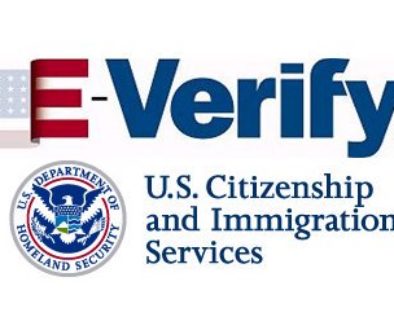Why perform a background check?
“The average cost of a negligent hiring lawsuit is estimated to be $1 million.”
There are many good reasons to look into an applicant’s background. Before you decide to trust applicants with your business’s money, equipment and reputation, you should be sure that their history doesn’t indicate they’ll take advantage of that trust. Moreover, you make a substantial investment in a new worker’s training and compensation. As with any investment, you want to make sure you’re not wasting that investment.
Fact is, not everyone can be trusted. When polled by executive search firm Ward Howell International, 17 percent of 501 executives surveyed said their new hires had misrepresented job qualifications. What’s more, applicants with especially scary skeletons in their closets aren’t likely to tell you about them. Finally, state laws require you to perform background checks on applicants for certain positions, especially ones dealing with children or the elderly.
According to Fast Company, one quarter of companies surveyed estimated that a bad hire cost them at least $50,000 in the past year. A bad hire results in lost time and expenses due to the need to recruit and train another new hire, as well as a negative impact on employee morale and a decrease in overall team and company productivity.
Running a background check is critical for making a more well-informed hire, allowing your company to focus on growing the business, not on dealing with potential problems.
Below are 4 risks your company can face when not having background checks as part of the hiring process.
1. False credentials:
Trusting your employees is key. You have to trust them to do their jobs, to treat customers and partners with respect, and to represent your brand appropriately.
Verifying credentials is particularly important when you consider a recent report from CareerBuilder. The report found that 58% of résumés include misleading or incorrect information, such as falsified education details and inaccurate job titles, seniority levels, and employment dates.
Hiring someone with false credentials can directly affect your existing employees, too. If employees don’t really have the experience or education they say they do, they may not be fit to do their job. And that can interfere with the whole team’s performance, as everyone relies on each other to pull their weight.
The survey also showed that managing a poor hiring choice in this respect can take 17% of a supervisor’s time (that’s almost a whole day per week!). Extra time spent managing a bad hire is less time spent on helping the business grow.
Therefore, running a background check is a surefire method to ensure you are hiring a candidate based on facts, giving you peace of mind and ensuring no time or effort go wasted.
2. Fraud, hacking, and cybercrime:
Many business owners are worried about employees stealing cash and inventory. This is a valid concern—a 2014 study by the Association of Certified Fraud Examiners found that global occupational fraud totals nearly $3.7 trillion annually. The report explains that average theft is approximately 5% of revenues each year.
You can do your best to be aware of such potential problems by conducting a thorough screening of a new hire. Examining work history gaps and reasons for leaving a job can help determine whether a candidate is a risk. If a candidate left a job without another job lined up or another explanation for the gap, it would be worthwhile to inquire about the reason for the departure. You never know—it could have something to do with taking advantage of previous employers and their policies, and so it would be best to find out now so that you can make an informed decision on whether to following through with the hiring of the individual.
3. Negligent hiring:
“Negligent hiring” is a legal term that describes an employer’s liability for an incident caused by an employee when the employer knew (or should have known) that the employee posed a risk.
For example, let’s say a company hires a delivery driver who gets into an accident that causes an injury which leads to a lawsuit. One of the first questions a plaintiff’s attorney is likely to ask is, “Did the employer run a background check before hiring the driver?”
The company would be in a much better position legally if it had run a background and motor vehicle records check that had come back clean.
On the other hand, if the company didn’t check, and there were previous license suspensions, the company could be found liable for the injury. That’s because it could have found out about the employee’s previous driving record, but was negligent and failed to check.
The average cost of a negligent hiring lawsuit is estimated to be $1 million. And, when such cases are brought to court, employers lose about 70% of the time. Given the cost and bad publicity a negligence lawsuit can create, it’s in your best interest to fully vet candidates with a thorough background check. It’s worth every minute—and penny!
4. Unsafe conditions for customers and employees:
Employers have a legal obligation to create a safe workplace for employees—and it’s also in their best interest to do so. But according to a SHRM study, 36% of employers reported workplace violence incidents. These incidents result in physical or emotional harm to employees and customers as well as negative repercussions to the company.
Background Screening before hiring is an important step toward reducing the risk of workplace violence. Convictions for violent crimes are an obvious red flag. And drug screening can play a role when it comes to reducing on-the-job injuries, too. Implementing new hire drug screenings at companies across numerous industries reduced worker’s compensation claims by about 50%, according to a survey conducted by SHRM.
As you can see, it’s time to seriously consider implementing background checks as part of your hiring process. Avoid wasting your valuable time and efforts on toxic hires. You have enough to do in your day without having to worry about your business or people being in jeopardy due to untrustworthy new hires.









